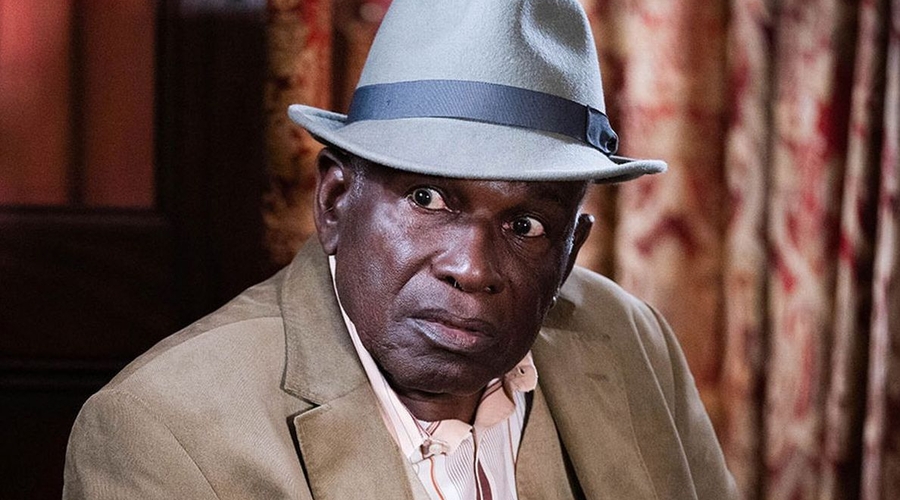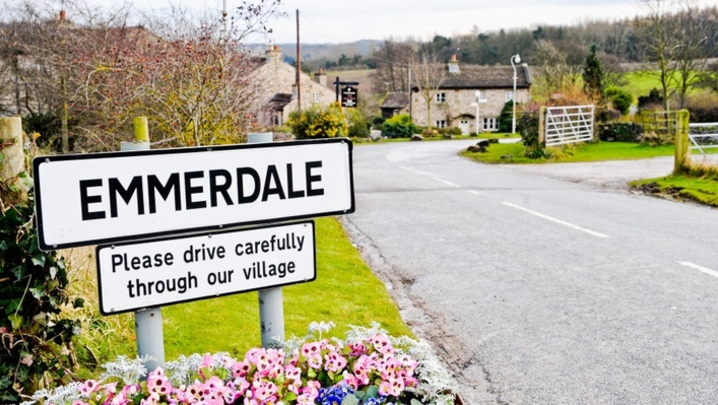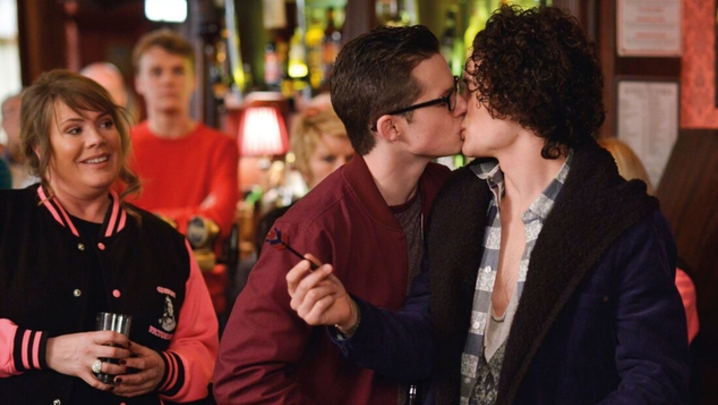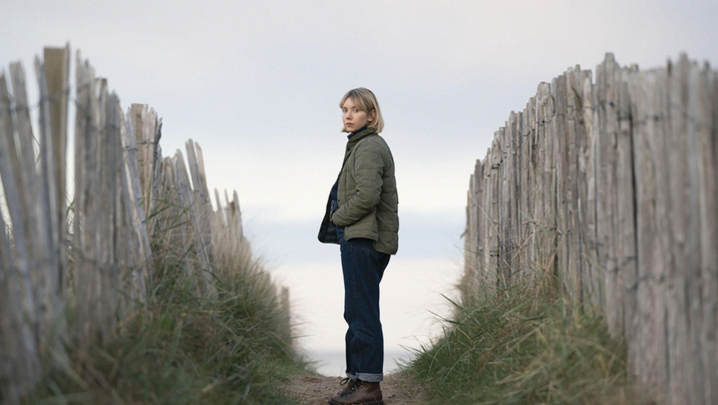Carole Solazzo asks people in her local community if shows such as Corrie and EastEnders are doing enough to represent the complexity of UK society.
‘I look at them both standing under the lamp. Ingrid… and this plain Jane, with a muddy complexion, a big nose, and a mouth like a crack in a pie.’*
‘… but there’s a lovely view of the gasworks, we share a bathroom with the community, and this wallpaper’s contemporary. What more do you want?’**
Anyone thinking these lines were spoken by one of the sharp-tongued, backstreet battleaxes from an early episode of Coronation Street wouldn’t be far wrong. Here’s why.
In the late 1950s, Britain was moving on from the class-ridden pre-war society to a more egalitarian country with the NHS, social housing and improved state education.
By early 1960, novels by Northern working-class writers such as Alan Sillitoe and Stan Barstow had been published. A Taste of Honey, by Salford writer Shelagh Delaney, had been staged at Joan Littlewood’s Theatre Workshop and then transferred to Wyndham’s in London’s West End.
And a 23-year-old writer at Granada called Tony Warren, bored of adapting Biggles, became part of this great upheaval by creating what was to become the longest-running television drama in the world.
What Warren did with Coronation Street, in true social realist style, was to hold up a mirror to society – the white, working-class society he knew and had absorbed as a boy.
Warren grew up in the 1940s “in a matriarchal society. All the men were at war and I was surrounded by strong women,” he told Melvyn Bragg in a 1995 interview. “I used to listen, under the kitchen table at my grandma’s… and I used to think, ‘that’s what men say, and that’s what women say’.”
However, the reflection was a small, selective slice of life. There had been a significant black presence in the North West since at least the 18th century, the first record of Jews in Manchester is from 1798, and there was even a group of Sioux Nation Native Americans who settled in Salford in 1887.
Even before the partial legalisation of homosexuality in 1967, Warren was an out gay man living in Manchester, where drag shows had taken place since the 1800s, and there had been a lively LGBT+ scene around Deansgate and Albert Square since the 1950s.
Yet it was EastEnders, created in 1985 by Julia Smith and Tony Holland, that screened the first gay character in 1986, and aired the first gay kiss on the lips in 1989. Not until 1994 did Brookside, created by Phil Redmond, give us the kiss shared by characters Beth Jordache and Margaret Clemence.
Almost 20 years on, how does the soaps’ representation of minorities measure up? “Soaps tend to dwell on the problems connected with being gay,” says Vanessa Whitburn, who is lesbian. The former Brookside producer and series editor of the world’s longest running soap, The Archers, says: “I understand why, but isn’t it about time we had a simple, gorgeous and sexy lesbian romance in a soap?”
Nawal and Dee, a lesbian couple in their late sixties who are members of my local community, tell me: “We don’t recognise ourselves in soaps at all.” Although Nawal cites the recent arrival of Mary Goskirk in Emmerdale as a possible exception, she thinks this is because “most lesbian couples I know lead ordinary, stable lives – hardly catnip for television producers.… But interesting stories can still wrap themselves around lesbian couples: two women I know have a lovely son through a sperm donor. One of them was… certain she didn’t want a child, but now worships him.”
Rachel Fox was a camera assistant on Coronation Street and now works in the anthropology department at the University of Manchester. She identifies as non-binary. Fox believes that, “because soaps are often written by a certain type of person, we only see a certain type of gay represented.… Gay people are often represented as like heterosexuals, just same-sex attracted. Queer culture, or our history, is rarely touched upon.”
Fox goes on: “HIV and Aids are still very much at the front of the minds of the gay community but seen by straight people as a 1980s thing. [Drag star] Cheddar Gorgeous… promotes things such as PrEP, the preventative drug, available on the NHS, that can reduce a person’s chances of contracting HIV.

(played by Faye Brookes) and Rana Nazir
(Bhavna Limbachia) began in 2018) (Credit: ITV)
“There are so many things that people don’t know about each other, so quite often people stay in their own lane.… As a queer person, I knew nothing about the trans community until I started doing social media for the Manchester Lesbian and Gay Chorus.… Until you’re given a moment to understand why someone is banging a drum about something… you won’t get their perspective. That’s why [representation] is so important.”
Coronation Street was the first British soap to include a trans character, although nowadays the role would rightly go to a trans actor.
However, Chair of the TV Committee of the Writers’ Guild of Great Britain Sukey Venables-Fisher, who has a trans history, believes that, with the emphasis on “at the time”, it was a good move: “I thought a trans character who was also emotionally complex and a good member of a community, not a freak show, damaged, or overly glammed, was important and positive.”
Venables-Fisher is also disabled and adds: “[What minorities add to a show] is the real world. When, sometimes, I’m described as a writer who champions disability, my response is: ‘No, not really. I just don’t edit it out.’”
The “real world” of the South Asian women of the Oldham women’s Care, Help and Inspire (CHAI) group just isn’t on screen, they say. They certainly don’t identify with the stereotypical woman who wears the hijab. “Usually, men are more dominant, but the scenario is changing. Women are gaining strength and power within the family,” Yasmin tells me. “Why don’t they show that?”
“I think that, where the man is the main breadwinner, he might not give the woman her full authority,” agrees Azeema. “That conflict would be interesting to include in a soap.”
Homera adds: “And we are trying to bring up our children by cultivating both things in them – modernism and Islam. It’s really tough. [Producers] should come and ask us for these stories.”
Group facilitator Yasmin Toor, who became Oldham’s first female Asian councillor in 2010 and Mayoress in 2015, remembers when her mother first came to the town: “She preferred to watch the English soaps, even though she didn’t understand them at the time, to learn about English life.”
For Najma Khalid MBE, founder of the CHAI women’s group, “representation of different communities is important for community cohesion.… Representation promotes not only understanding but acceptance, too.”
Khalid praises EastEnders for covering gay issues and domestic abuse within a Muslim family, but asks, “When Bobby Beale converted to Islam, why couldn’t that story have been given to a Muslim who had lost their faith and then reverted back to Islam?”
Khalid asks, “Where are the positive stories? How about covering South Asian women in professional life? In civic life?” She concludes: “There need to be more South Asian decision-makers in television.”
There have always been Jewish decision-makers behind the “big desks” in television. Yet the only Jewish characters in soaps that Ric Michael, former head of development at Baby Cow, can remember are the world-weary but wise Dr Legg in EastEnders and Nicola Rubinstein in Coronation Street.
It’s complicated,” he tells me. “[Producers] don’t know what to do with Jews because we aren’t necessarily a different colour. Ninety-nine per cent of Jews don’t wear a yarmulke [skullcap]… Also, we are probably two or three generations more assimilated.”
He continues: “Dr Legg was a believable character because he was a doctor who happened to be Jewish, not an East End stereotype.… In the past, there’s been a propensity to caricature Jews, and now perhaps to leave them out for fear of caricaturing us.… But [representation] could be done subtly.”
Soberingly, the issue of Jewish representation also differs because of Jewish history. “My dad only felt at home in Israel,” says Michael. “There’s that thing of, ‘Make sure nobody sees you’… or, ‘It’s better if we’re not characters because then we’re not the focus for anybody’.… We’ve all got that virtual suitcase in the hall in case we need to make a quick exit.”
Lornah, Audrey and India, volunteers at Levenshulme community radio station ALL FM and from Manchester’s black Caribbean community, say that while the soaps often get it right, sometimes they get it wrong.
Lornah says she was disappointed recently: “I felt like [the Emmerdale character] Naomi was feeding into the ‘angry black girl’ stereotype – and did she have to come from a gang as well?... But I’m glad there’s a black family in Emmerdale, and a black family in Coronation Street.”
“EastEnders feels more current, and it’s the soap that reflects myself, my family and my neighbourhood the closest,” India says. “The different generations living together… It’s the only soap where the characters just exist, as part of the dynamic, like the Truemans and the Foxes. [They are]key parts of EastEnders, unlike soaps where characters are brought in with an agenda and feel like an ‘add-on’.”
Audrey, too, worries about black stereotyping: “I don’t know anyone who is a drug dealer or has murdered someone. I don’t know anyone who owns a gun. If it’s supposed to be a reflection of society, then it’s a reflection of the seedier aspects.”
She also calls for more sensitivity, citing a get-together in the Vic, where “they’ve taken a black song and made it a white song by changing ‘We’re going to Barbados’ to ‘Ibiza’.”
Hollyoaks writer Thabo Mhlatshwa was conscious of both sensitivity and stereotyping when he pitched a storyline about black boys and knife crime. “There were two things [I considered]: first, I live in Croydon and I grew up in Peckham and there’s a lot of knife crime in those areas with people the same age as DeMarcus [the Hollyoaks character]. When you write a soap, you have a social responsibility to tell those stories. [Second,] when you are a black boy and you get caught with a knife, even if you have the best reason for having it, you’re judged ‘guilty’ straight away.
“At its heart is a father-and-son story, not a knife story. And, if you have black talent not only in front of the camera but also behind it – writers, directors, and producers – and there’s a great shortage of black producers in the industry… what feels like it could be a stereotypical story won’t be played as such.”
In 1959, Delaney wrote A Taste of Honey, which included a black character and a gay character, yet almost 65 years later it seems there is still work to be done.
Carole Solazzo has worked as a scriptwriter, story producer and story associate on soaps including The Archers, Doctors, Coronation Street and Hollyoaks.
*From A Kind of Loving, by Stan Barstow
**From A Taste of Honey, by Shelagh Delaney






